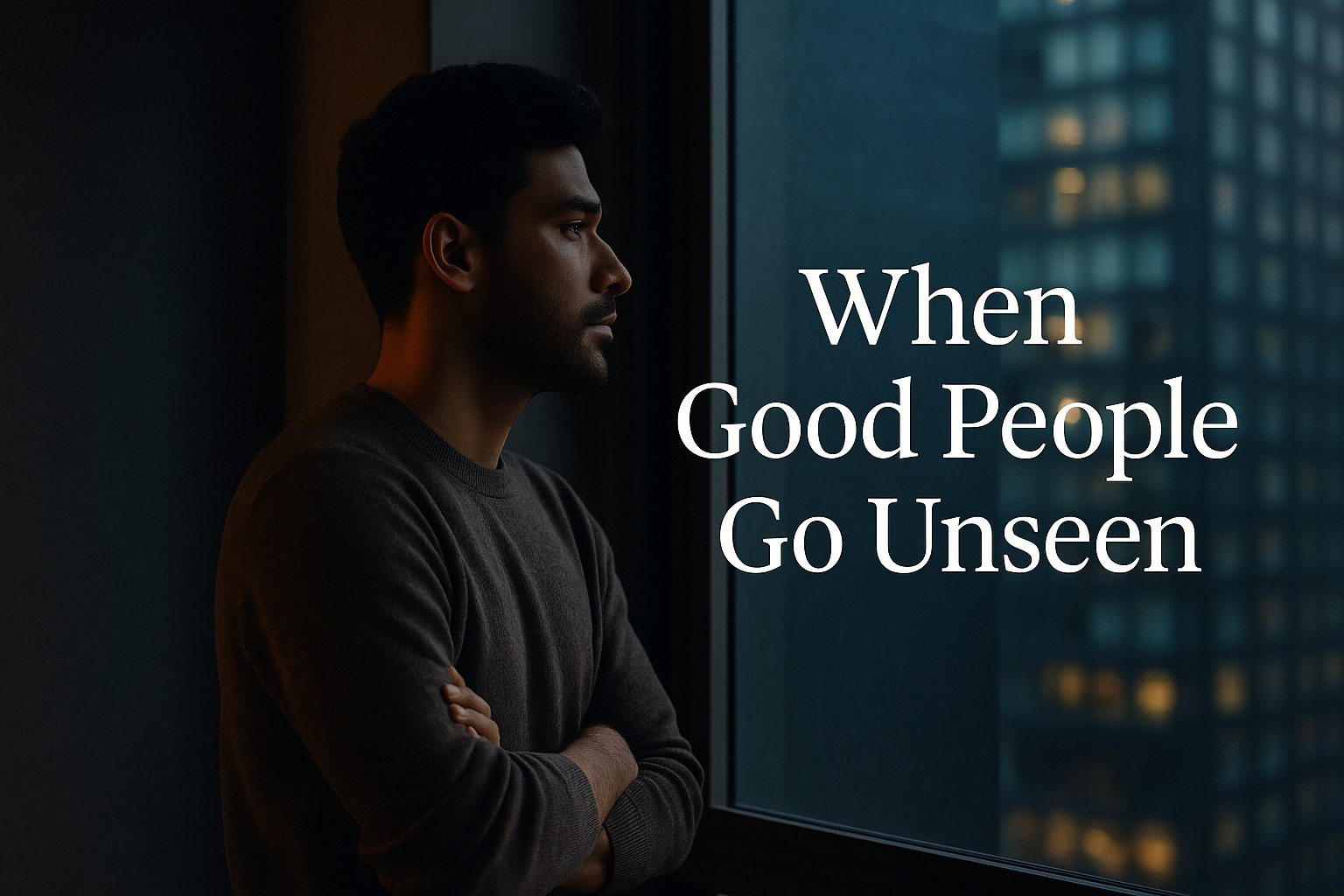
When Good People Go Unseen: A Reflection from a Client Who’d Had Enough
A client I recently worked with came to me completely drained. They weren’t burned out from workload, they were burned out from being invisible.
They described working for an organisation that never once offered praise or recognition. Every success went unnoticed, yet the smallest perceived mistake brought scrutiny, frustration, and, often, public criticism. Their words were simple but heavy:
“They never say well done, but they’re quick to say what I’ve done wrong.”
This is more common than you might think. And it’s not about sensitivity or ego, it’s about psychology.
The Erosion of Recognition
In our sessions, we spoke about how human beings are wired for acknowledgment. Psychologist Abraham Maslow called it an esteem need, that deep human desire to feel valued, respected, and appreciated. When this need is consistently ignored, it can lead to what psychologists refer to as learned helplessness, the sense that, no matter what you do, it won’t make a difference.
That’s what my client was experiencing: showing up, giving their best, but feeling smaller with every day that passed. Not because their work lacked impact, but because their environment lacked empathy.
When Criticism Comes from Fear
What became clear over time was that the behaviour of their employer wasn’t about my client at all. It stemmed from fear and insecurity.
When leaders operate from paranoia, constantly anticipating mistakes or betrayal, they become hyper-vigilant. Every independent action looks like a threat to their control.
In psychoanalytic terms, this is called projection, when someone unconsciously attributes their own fears or shortcomings to others. A leader who doubts their own capability may accuse others of being careless or unreliable.
This isn’t leadership, it’s self-protection disguised as authority.
The Cost of Fear-Based Leadership
The real tragedy is that organisations built on fear drive away the very people they can’t afford to lose. People like my client, loyal, thoughtful, conscientious, begin to shut down emotionally.
Carl Rogers, the founder of person-centred therapy, wrote about the importance of unconditional positive regard, an environment where people feel valued for who they are, not just what they produce. Without it, people don’t grow. They simply endure.
And endurance, no matter how admirable, isn’t sustainable.
Rediscovering Self-Worth
As therapy progressed, my client began to separate their identity from their employer’s projections. They started to understand that a lack of recognition didn’t equal a lack of value, it reflected the limitations of the people they worked for.
They made small but powerful changes:
- They stopped over-explaining themselves.
- They began documenting their wins, not to prove anything, but to see themselves again.
- Eventually, they explored opportunities where appreciation was part of the culture, not a luxury.
Because when you stop chasing approval from those who cannot give it, you begin to reclaim your peace.
A Thought to Leave You With
This client’s story isn’t unique. Many talented, kind people lose sight of their worth in environments where paranoia overshadows praise. But remember: their inability to recognise your good says everything about their fear, and nothing about your value.
Leadership that operates through fear will always lose the good people first. And sometimes, the bravest thing you can do is step back, remind yourself of who you are, and decide that your worth is not up for debate.